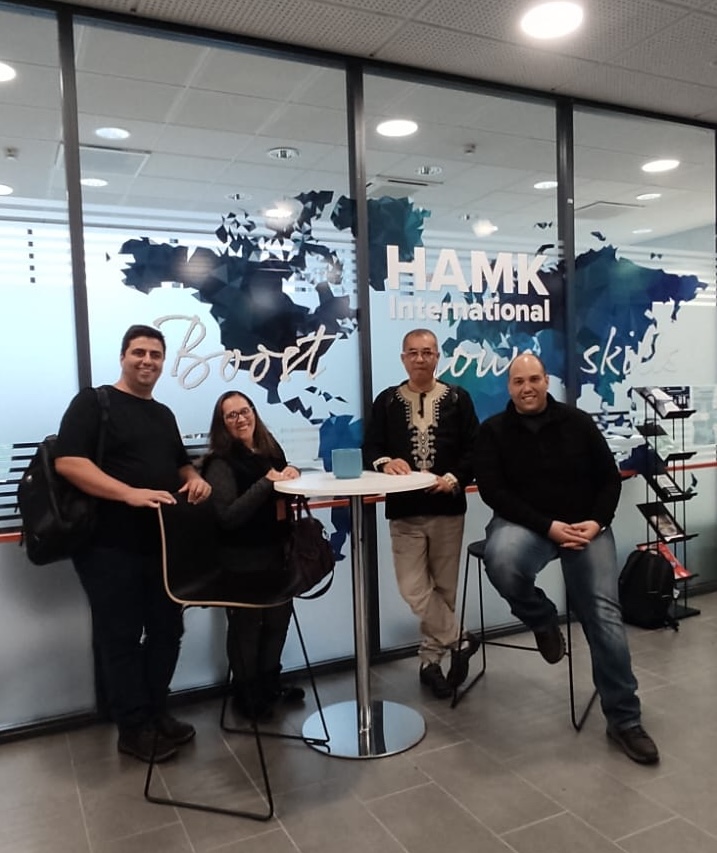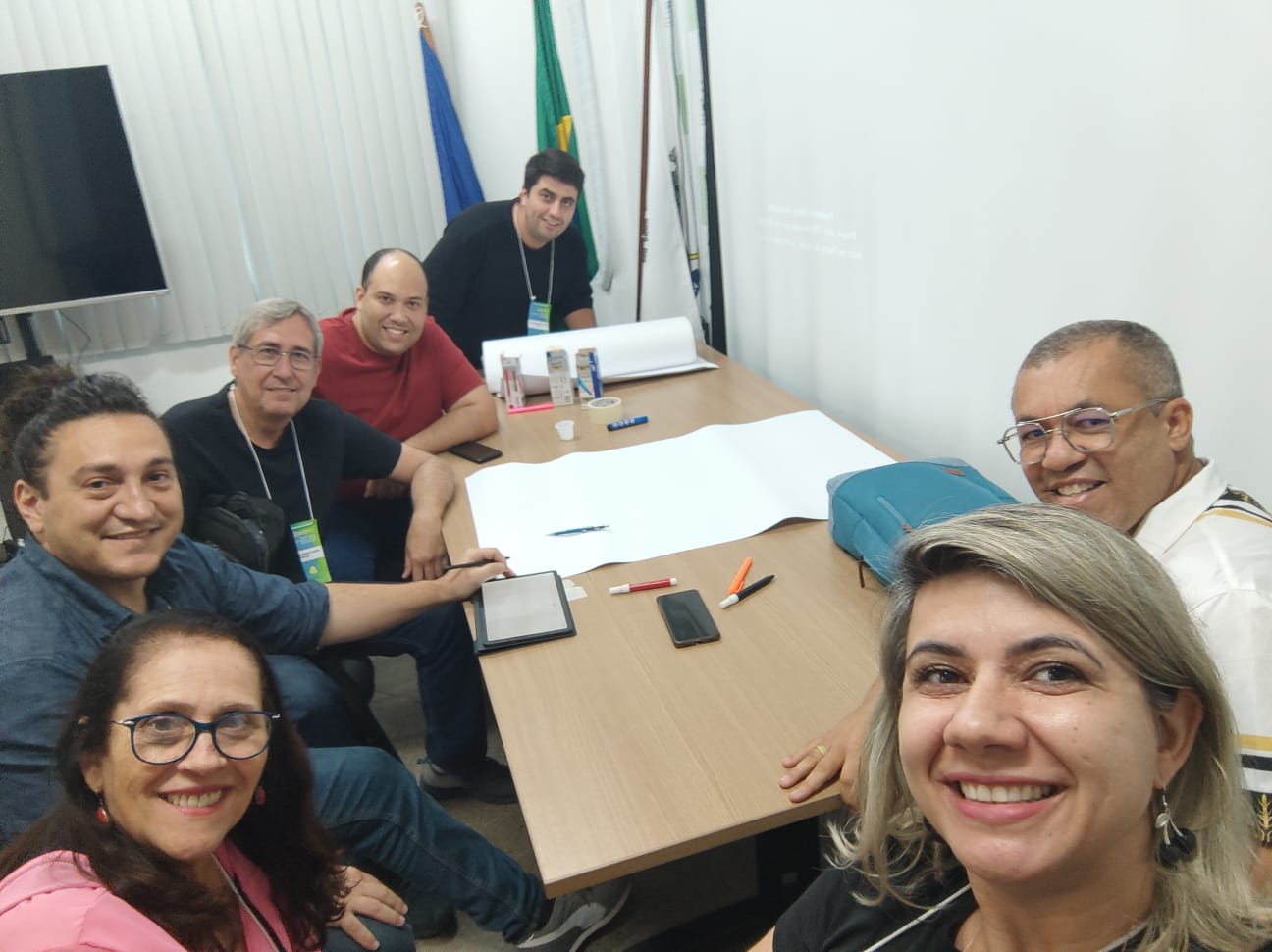Instructional Design Research in the Brazilian Context: Contributions of Qualitative Principles
Published 12 April 2024

Photo by: Photografer
The present essay proposes a reflection on the contributions of qualitative principles in research to be developed in the field of Instructional Design, aiming to contribute to the proposition of new methodological approaches.
Authors:
- Cristiane Freire de Sá, IFSP
- Paulo José Evaristo da Silva, IFSP
- Ricardo Medeiros Priuli, IFSP
Translation and Revision: Rubens Lacerda de Sá, IFSP
Introduction
The present essay proposes a reflection on the contributions of qualitative principles in research to be developed in the field of Instructional Design, aiming to contribute to the proposition of new methodological approaches. The central discussion revolves around the need to update the theoretical foundations of this area, emphasising the importance of choosing suitable methodological approaches for Instructional Design research in the Brazilian context. Methodological principles are suggested, including interdisciplinary approaches, active researcher participation, valuing research participants as collaborators, and alignment with Brazilian social and cultural realities. The conclusion underscores the importance of expanding and updating the epistemological foundations of the field, surpassing traditional views, and developing new theoretical and practical knowledge from a Brazilian perspective. The text emphasises the need for research that contributes not only to conceptual problematisation but also to the generation of new instructional designs aligned with the reality of Brazil.
The Instructional Design (hereupon ID) field is a multidisciplinary discipline that focuses on the development of learning experiences and on educational projects mediated by the technologies. This field combines principles of design, educational psychology, administration of processes and technology so as to create educational experiences that accommodate particular learning objectives. The main goal of ID is to promote the production of educational processes in a way which is aligned with the social and cultural demands.
In the core of this field resides the need to understand the learning goals through the most coherent pedagogical strategies possible. The professionals of this area, named as instructional designers, work to create learning environments that are accessible, motivating and capable of accommodating a variety of learning styles.
These actions can be addressed in pedagogical principles that can be traditionally and heavily influenced by behaviourism and cognitivism. However, ID in Brazil is an open field for new research and updates. In general, the processes of ID usually involve many phases, including the analysis of learning needs, the establishment of educational goals, the development of digital educational resources, the implementation of teaching strategies, evaluation and so forth.
The approach can fluctuate depending on the educational context, the target audience and the nature of the content to be taught since these elements can demand new ways of developing the conceptual constructs of ID. It’s not only about a field of knowledge that brings forth comprehension to the traditional classroom environment. With the advance of technology and after the impacts of the pandemic, professionals of this field are also involved in the creation of online educational materials, e-learning courses, interactive simulations and other digital resources. That demands a deep comprehension of a variety of educational technologies as well as a continuous ability to adapt to the changes in the educational scenario and, mainly, the development of new methodological strategies of investigation and research in this field.
In summary, ID plays an important and relevant role in the creation of learning environments coherent with complex realities such as the ones posed in the Brazilian educational scenario. By combining educational theories, technology and design abilities, professionals of this field contribute for the promotion of innovative educational processes. Nonetheless, it’s necessary to have more research in order to consider some matters that can aid in the choices of more pertinent methodologies.
In this essay, there can be found in the first section the presentation of a synthesis of the epistemological bases of ID. Then, in the second section, there is a conceptual problematisation about the use of the instructional term from the perspective of the Brazilian picture of this field. In the third one, some suggestions of principles that can be of help to choose or define methodological approaches more coherent to the investigation of ID, such as qualitative approaches that allow the use of processes and more participative instruments.
Instructional Design, Synthesis of the Epistemological Bases
The epistemological bases of ID are strongly influenced by the North American behaviourist theories (Gomez, 2004). In countries like the United States, it’s common to find course offers in this field on different educational levels and modalities. In Brazil, having as reference the fields of knowledge mapped and organised by the Coordenação de Aperfeiçoamento de Pessoal de Nível Superior (CAPES), the body of knowledge that involves the epistemological bases of Instructional Design are not enough so that it can be recognised as a field of knowledge yet. However, from the studies of Romiszowski and Romiszowski (2005), and Filatro (2004, 2008), pioneer authors at researching and bringing knowledge about this field in Brazil, it’s possible to comprehend that ID is composed by three different areas: Human Sciences, Science of Information and Administration.

To sum up, it’s possible to deduce, from this perspective, that ID can be defined either as inter or transdisciplinary, since it articulates the knowledge of these three sciences to create new knowledge, techniques, tools and resources that solve complex educational problems. It must be also highlighted that Romiszowski and Romiszowski (2005), and Filatro (2004, 2008) contribute to the identification of the theoretical influences that reach through the initial definition of ID presenting a historical synthesis of it since its origins to World War II and the influence of the American conceptions about teaching and learning.
The historical synthesis these authors present makes it possible to identify that these influences are, in their majority, originated from the production of knowledge from American thinkers of the epistemological behaviourist and cognitivist lines, as highlighted in the following chart.
Chart 1
Main theoretical bases of the Instructional Design field
| Theoretical Bases | Thinkers | Contributions |
| Behaviorism | Burrhus F. Skinner | Science of Behavioral learning |
| Cognitivism | Robert Mills Gagné | Theory of instruction, Principles of ID |
| Benjamin S. Bloom | Taxonomy of the goals of learning | |
| David Paul Ausubel | Theory of significative Learning | |
| Charles M. Reigeluth | Theories and models of ID |
Source: Authors (adapted from Romiszowski & Romiszowski, 2005; Filatro, 2008)
In face of the theoretical bases presented in the chart above, it’s possible to infer that the ID comes from behaviourist and cognitivist assumptions and ends up strongly influencing educational projects.
Thus, some possibilities can emerge, especially in regard to the development of ID in terms of the production of knowledge arising from the production of researches which critically revisit the theoretical bases of this field, in particular, from the investigation of the professionals who work on this field’s experiences.
Instructional Design vs Educational Design, a Brazilian Perspective
In Brazil, the use of the term instructional design has been problematised, as we can find in Gomez (2004) and Freire’s (2013) works. Such problematisation has the word instructional as its starting point, as Gomez (2004, p.127) pointed out when summarising the relationship between Instructional Design and Educational Desing:
Today, talking about educational designers recalls the concept of instructional designer that appeared tied to many learning theories, especially to the behaviourist and the neo behaviourist ones. The concept of ID has had its contribution from the taxonomy of Bloom (1973), from the 1950’s.
By bringing this observation to the core, Gomez (2004) highlights that the strong influence of the American Behaviourism extrapolates the mere substitution of the word instructional by educational. For this author, the construction of a body of knowledge that breaks up with these theoretical bases demands contexts of application of ID strategies in Brazilian context.
In order to amplify the understanding about the problematisation that exists in ID, it’s pertinent to recall Gomes’s (2004,p. 125) contribution which presents a reflexion over what is modified in terms of signification of the concepts of “instructional” and “educational” or “educative”. Proceeding with Gomes’s notes (2004, p. 126), it’s possible to understand better these differentiations through the following contribution:
The designer exercises the art of drawing in general. In education, we find antecedents in the industrial designer, whose third degree training was supported by a fordist and industrialist learning theory, that is, an education like an “assembly line”. The industrial designer today is adapted to meet the demand of professionals specialised in marketing and IT and, in education, they can have a behaviourist or dialogical approach.
By problematising instruction and education, both processes that can be developed in the field of Instructional Design, Gomez (2004) highlights the possibility of two approaches to developing it: a behaviourist approach, more traditional, the other, more dialogical, which meets different scenarios. This author has her educational conceptions based on the works of the Brazilian educator Paulo Freire and highlights the dialogical freirean concept as a principle that privileges dialogue between educational agents.
To Gomez (2004, p. 127), dialogical approach of Educational Design occurs when the subject is the designer of the educational solution:
Plan your project with a multidisciplinary team with professionals from various fields: educators, psychologists, social communicators, webmasters, web designers, IT technicians, programmers, businesspeople and administrators. The purpose is to integrate knowledge, needs, interests, goals, content, strategies, media (tools) and assessments into a script from which a course is developed. The courses thus developed provide an interactive and multimedia environment in the virtual space, which will be the place where activities and meetings between people will take place.
In line with a dialogic approach to educational design, however based on the work of Edgar Morin (2003), who understands the concept of dialogic as the complementarity between opposites. Another researcher who problematizes the term instructional in the field of Instructional Design is Maximina Freire (2013), from the Pontifícia Universidade Católica de São Paulo.
Freire (2013) focused on systematising an educational design proposal, Complex Educational Design, based on the assumptions of complex thinking proposed by Edgar Morin (1996), and which is an epistemology that distances itself from the traditional theoretical bases of ID.
Starting from an epistemological critique of predominantly behaviourist bases, Freire (2013) proposes a legitimately Brazilian educational design framework that is open and allows different forms of production and construction of knowledge, opening paths for other research in the field.
Both Gomez (2004) and Freire (2013) are Brazilian researchers who illustrate it is pertinent, in educational terms, that the theoretical assumptions in ID can be updated and that there is an emerging need to develop research, in particular, based upon the impacts of the pandemic on educational processes.
Based on this problematisation, it’s understood that it’s through carrying out research that it becomes possible to investigate how the Instructional Design field, in the Brazilian context, has developed in instructional and educational terms.
Studies in this path can start from social educational practices carried out by subjects who work in this area, however, for the participation of these subjects to happen, it is pertinent that research is developed based on qualitative principles.
Qualitative Principles for the Development of Research in ID
Researching to expand ID based on the Brazilian reality is an ethical emergency. Since this field has been developed within the complex Brazilian educational network, whether in terms of educational modality or via cultural and social aspects.
From a traditional Instructional Design perspective, educational projects that follow behaviourist epistemological bases may not meet the complex processes that emerge in the context of Brazilian basic education schools. An example of this are self-managed learning processes that are not the bases of didactic processes in this picture.
The understanding that the Brazilian educational process is complex in different dimensions and that the issue of the subjects of such process is one of the points to be observed within the scope of the application of constructs in the Instructional Design field demands methodological forms of investigation that can be coherent with this scenario.
Thus, unlike processes of behavioural analysis of educational processes that can be privileged when considering the behaviourist epistemological bases, this essay suggests the emergence of the development of investigative methodological processes that contemplate the qualitative elements of the phenomena that emerge from the context of the application of the Instructional Design in Brazilian scenarios.
In this regard, for the development of research that lean over the development of ID in Brazilian context, it’s pertinent to consider the following methodological principles and elements which can contribute towards an interpretive qualitative investigation process:
- The use of interdisciplinary and transdisciplinary methodological approaches which can cover, in the same way as the ID, different fields of knowledge;
- The reinsertion of the researcher as an active subject and participant of the investigation process, including, in a dialogical perspective which involves the interpretation of the drawn learning experiences;
- The use of tools and processes which value the research participants as collaborators and that can, also, privilege dialogical and educational processes as investigation procedures;
- The use of elements and resources from ID articulated with the chosen methodological processes and procedures;
- Approaches on qualitative research that involve participative and interpretive strategies which can generate knowledge that retro feeds ID;
- Qualitative methodologies that are aligned and contextualised with scenarios, environments and social and cultural dimensions in which constructs from ID are being used and investigated;
- Construction of knowledge originated from qualitative approaches that allow the update of the epistemological bases of ID so that they are more aligned with the Brazilian reality.
These qualitative methodological principles are, in terms of investigation, principles that can serve as elements of inspiration for the development of research that seeks to expand or update theoretical assumptions in ID by carrying out research that springs from Brazilian social practices.
It’s of utmost importance to develop research that aims at contributing not only to the problematisation of the issue by differentiating the concepts of instruction and education in ID as a field of knowledge, but mainly to the production of knowledge originating in the Brazilian context that generates new instructional designs and new methodological research approaches aligned to this field.
(Partially) Tying Up Loose Ends of the Discussion
ID in the Brazilian context is still a field that can be widely researched. However, it is pertinent to seek to choose or develop qualitative methodological approaches that can reveal the State of the Art in this field based on the application of its theoretical and practical constructs.
One of the points that can serve as a basis of inspiration for the development of new research and the use of new methodological approaches to understand this field in Brazil is how the problematisation between the terms instructional and educational reveals the need to expand and update the epistemological bases of the field.
In conclusion, it’s noticed the development of ID as a body of knowledge that overcomes the traditional views of behaviourist and cognitivist epistemologies as well as develops new theoretical and practical knowledge in this area from a Brazilian perspective.
References
Filatro, A. (2004). Design instrucional contextualizado. Senac.
Filatro, A. (2008). Design instrucional na prática. Pearson.
Freire, M. M. (2013). Complex Educational Design: A course design model based on complexity. Campus-Wide Information Systems, 30(3), 174-185.
Gomez, M. V. (2004). Educação em rede: Uma visão emancipadora. Cortez
Morin, E. (1996). O problema epistemológico da complexidade. Europa-América.
Morin, E. (2003). Cabeça bem-feita: Repensar a reforma, reformar o pensamento, (E. Jacobina, Trad.). Bertrand Brasil.Romiszowski, A., & Romiszowski, L. P. (2005). Retrospectiva e perspectivas do Design Instrucional e Educação a Distância: Análise da literatura. Rev. Bras. Aprendizagem Aberta e a Distância, 4. https://doi.org/10.17143/rbaad.v4i0.168



